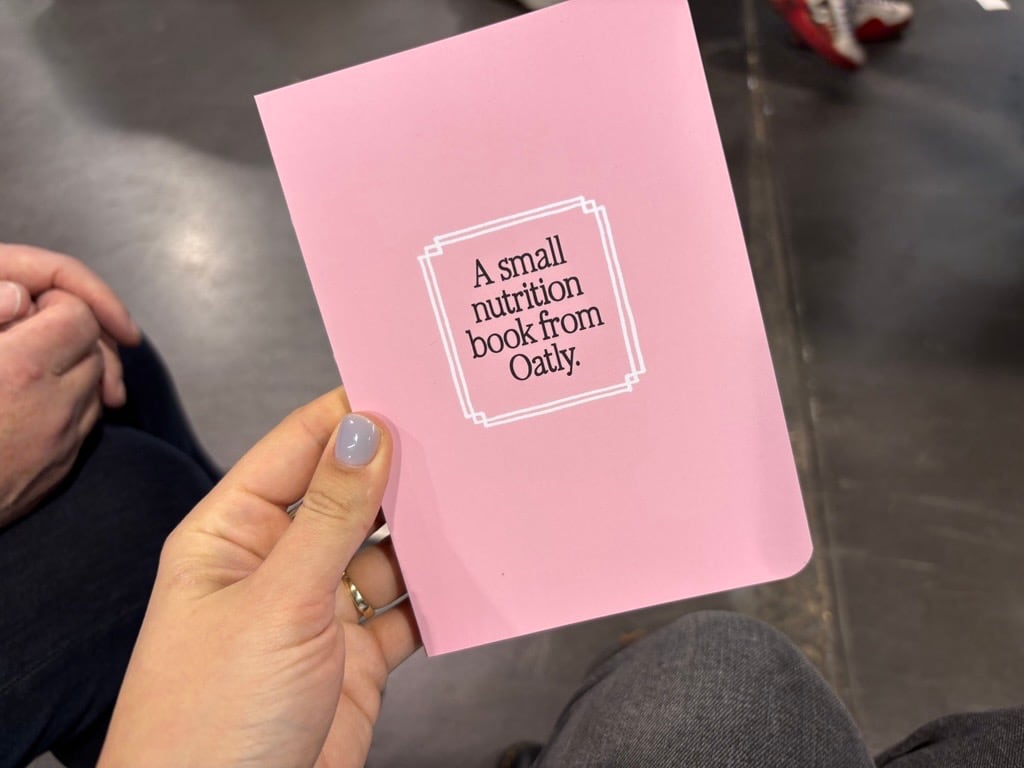Despite waning plant-based milk sales – which dropped for the first time in years in 2025 to $2.9 billion, a 4.4% decrease from 2023, per Nielsen NIQ data – there is hope for the category, according to Helge Weitz, president of Oatly North America.
The oat milk manufacturer views itself as a science-based company, seeing food as an asset in creating healthy and sustainable products, according to Weitz.
Weitz says that the category and Oatly can improve sales through ingredient technology that addresses taste and texture concerns and consumer education around processed foods.
A proponent of demystifying processed foods
To reinforce the safety and importance of certain processed foods, one of Oatly’s initiatives features the print and online book: “A small nutrition book from Oatly.”
The book addresses hot topics like seed oils and food processing while clarifying that the stigmatized terms can be beneficial to human health, like providing vitamin and mineral fortification.
“The good thing with plant-based products, especially when we think about taste – but also health – is that there is no limit. Cow’s milk will stay cow’s milk, but plant-based products, our products can always improve and become better,” Weitz explains.
Aligning with coffee trends
The company’s work alongside the coffee industry with 60 baristas on staff led to the creation of Oatly’s Oatmilk Barista Edition, which Weitz describes as “the most visible and most popular product within plant-based dairy all over the world.”
Oatly views consumer interest in cold brew and coffee drinks as an opportunity to grow alongside the coffee scene, Weitz said.
“Our Barista Edition tastes better in coffee than cow’s milk, but maybe in two, three, four years, we can improve it even more and make it an even better taste experience so that maybe cow’s milk doesn’t need to be an option at all anymore,” he added.
Oatly’s pricing is slightly lower than premium dairy milk
Prices between Oatly and premium fortified dairy milks are comparable, with the latter being slightly more expensive.
A 32-ounce of Oatly Oatmilk Barista Edition ranges anywhere from $4.99 at Target to $5.79 on Instacart, while a half gallon of Horizon Organic’s Whole Milk with DHA Omega-3 ranges between $5.59 on Amazon to $6.59 at Target.
Weitz points out that consumers are willing to pay more for premium products like Oatly. Despite category headwinds attributed to factors like inflation and consumer taste and texture perceptions on plant-based, it is “still a very young category.” However, Weitz says he believes this is an opportunity to “improve and start the next wave again.”
Climate messaging
The company recently was named a Climate Solutions Company – and the only food brand to make it on the list – by Exponential Roadmap Initiative (ERI), which includes multinational consumer products companies like Apple and Netflix.
ERI participation includes reducing greenhouse gas (GHGs) emissions across Scopes 1, 2 and 3.
Oatly also is piloting a new model called Spheres of Influence “for setting targets, measuring and reporting on the impact outside of its direct value chain” towards “societal net zero,” according to the company.

